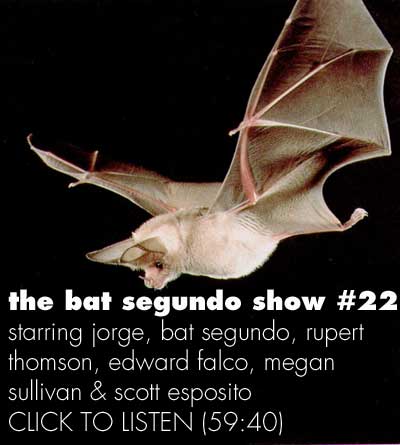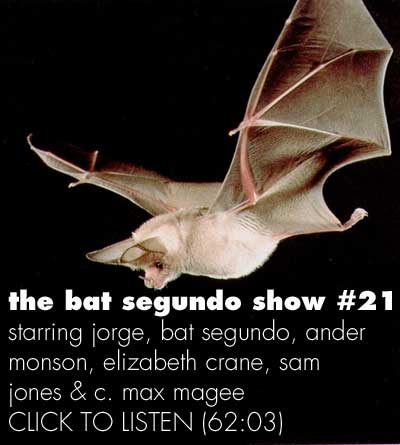My 75 Books post for the past two weeks will still have to wait, but in the meantime, one of the books, Elliot Perlman’s Seven Types of Ambiguity, has been taken up by the remarkable Jenny D. Her verdict: She completely loved it. Again, we have a possible case here of Perlman being misunderstood. But there are easy reasons to love and there are easy reasons to hate the book. I’ll say that I thought Simon, much like all the other cases, an inveterate whiner, and yet an interesting one. I think the biggest point of contention is this: If Simon is an intellectual, why does he not rationalize his way out of loving/stalking Anna, much less kidnapping her son? If you can accept this wild melodramatic premise, then I think you will accept the book. My theory for those who love it and those who hate it: If during some portion of your life you have thought or have been momentarily misguided by such visceral flights, you will “get” it. Perhaps in Australia, where the book was a bestseller, this is more of an unreserved character trait than in lofty New York circles. Then again, reader temperament shouldn’t be a criteria for whether a book is “good” or not.
Month / February 2006
The Bat Segundo Show #22
Authors: Megan Sullivan, Rupert Thomson, Scott Esposito and Edward Falco.
Condition of Mr. Segundo: Looking for answers in British science fiction.
Subjects Discussed: How the idea came about, relentlessly cheery Swedish girlfriends, how Rupert Thomson processes his prodigious research, Ian McEwan, inspiration vs. craft, the trappings of being a “speculative fiction writer,” entertaining novels vs. literary novels, the difficulties of first-person narration, George Orwell, Anthony Burgess’ The Wanting Seed, Mikhail Bulgakov and literary influences, definitive grit in rural settings, disturbing characters, sex and death, decorum in fiction, what’s not talked about in fiction, manhood vs. multicultralism, Catholicism, the influence of personal background, Philip Roth’s American Pastoral, World War II, realism vs. postmodernism, hypertext fiction, compulsions, experimental fiction, literary vs. commercial fiction, and writing in longhand vs. writing on computer.
Listen: Play in new window | Download
The Bat Segundo Show #21
Authors: Sam Jones, Ander Monson, C. Max Magee and Elizabeth Crane.
Condition of Mr. Segundo: Snubbed and self-righteous.
Subjects Discussed: Visceral voice vs. conceptual voice, the book’s origins, the Monson universe of stories, snow, self-help books, postmodernism, the war on ambitious fiction, John Barth, the original expansive form of Other Electricities, Twin Peaks, book design, Mark Danielewski’s House of Leaves, experimental fiction, how Other Electricities was almost published by McSweeney’s Books, Rick Moody, Monson’s obsession with snow, mashed potatoes, Jonas Hanway, umbrellas, comparisons with Elizabeth McKenzie’s Stop that Girl, writers named Elizabeth, blatant autobiographical fiction vs. entirely invented fiction, Owen Wilson, the influence of pop culture upon Crane’s writing, numerology, three-minute films, Maury Povich’s sadism, writing for Nerve, the horrors of blueberry bagels, the influence of David Foster Wallce, Michiko Kakutani, the credibility of “by the way” in dialogue, being categorized as chicklit, dicklit, Nick Laird, on being reviewed, the pros and cons of being a woman writer, and New York vs. Chicago.
Listen: Play in new window | Download
A Map to the Music of Time
One person’s history of music, as represented on a London Underground map. (PDF)
Questions for Rupert Thomson
This week, at the LBC, Rupert Thomson Week begins. The author himself will be on deck tomorrow (12:30 PM-2:00 PM PST, 3:30 PM-5:00 PM EST) to answer questions from readers pertaining to Divided Kingdom. Feel free to leave a comment in this thread if you have a specific question.

